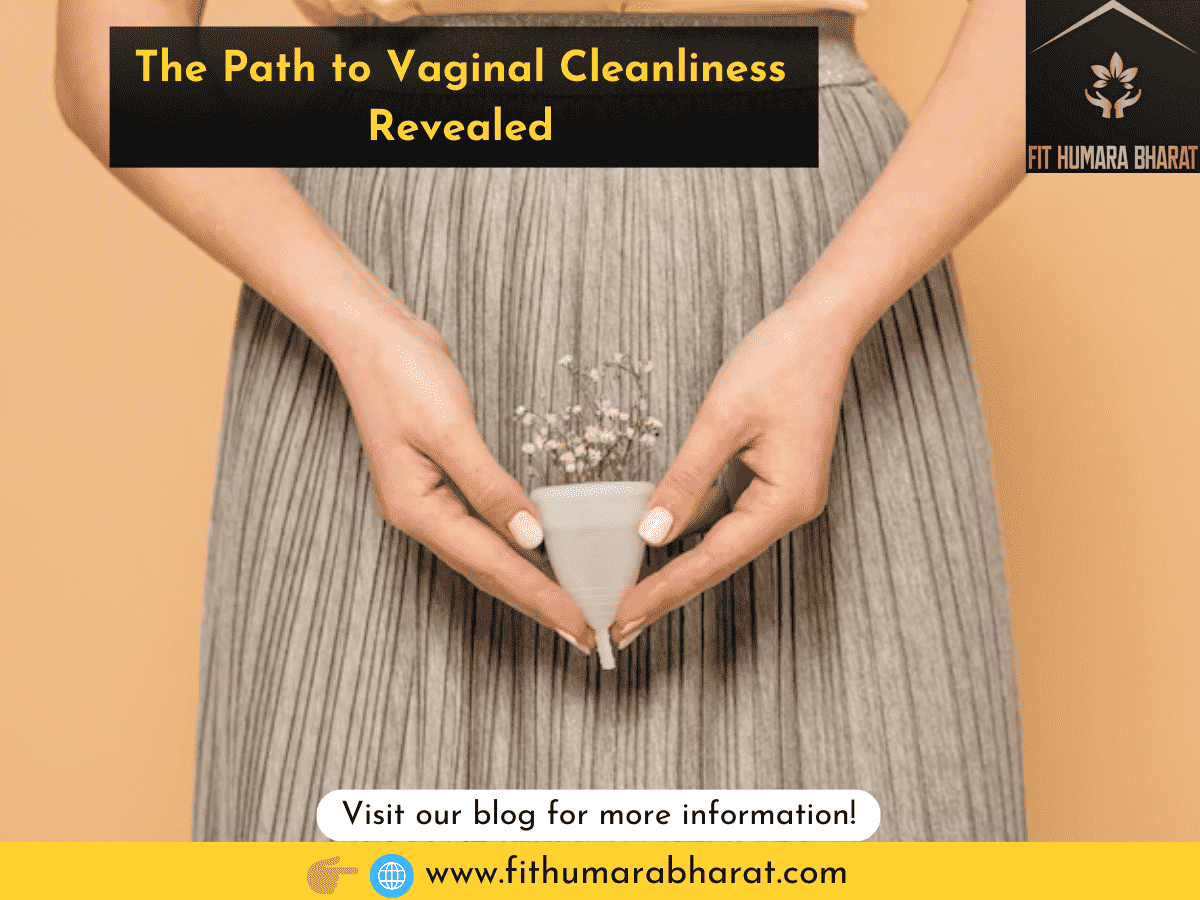To guarantee that every woman feels comfortable taking care of this private part of her body, it is crucial to create an atmosphere of transparency and knowledge. As we go, let’s embrace the path to feminine health with awareness, education, and a dedication to ending the taboo around vaginal hygiene.
For general health, it is important to comprehend and keep this private area of the female body clean. We examine several facets of vaginal hygiene in this statistics analysis, dispelling myths and emphasizing the need of making well-informed decisions.

1. Product Overuse:
Strong cleansers or perfumed soaps might upset this delicate equilibrium. The data research highlights the need for educational campaigns since over 60% of women are not aware that the vagina is self-cleaning. Excess use of external items may cause imbalances, irritability, and heightened susceptibility to infections.
2. Every Vagina Is Different:
It’s important to allow and honour the variety of female vaginal flora. Because each woman’s physique is different, what suits one may not suit another? Adopting individualised hygiene routines that support vaginal health requires accepting this variation and having a thorough grasp of one’s own body.
3. Sanitation Procedures:
In a Women’s Health Foundation poll, 85% of participants said they used store-bought personal hygiene products. Experts advise avoiding using these items excessively, however, since this might upset the vagina’s natural pH balance and result in infections and discomfort.
4. Sexual Activity:
There are effects of sexual activity on the vagina. According to the International Journal of STD & AIDS, 75% of women have sex, and preventing infections may be achieved by practising good hygiene both before and after. However, using strong soaps or cleaning too much might damage the natural flora.
Statistical Overview:
To gain insights into the current landscape of vaginal cleanliness, a survey was conducted among women aged 18-45. The results provide a snapshot of attitudes, habits, and challenges surrounding this essential aspect of women’s health.
Frequency of Cleansing:
78% of respondents reported practicing daily vaginal hygiene routines.
15% opted for cleansing every other day, while only 7% reported less frequent cleansing.
Choice of Cleansing Products:
62% preferred mild, pH-balanced soaps specifically designed for intimate areas.
28% used only water for cleansing.
10% relied on scented or antibacterial soaps, potentially disrupting the natural flora.
Impact of Clothing Choices:
68% acknowledged the influence of clothing on vaginal health.
32% were unaware or did not consider the connection between clothing and vaginal cleanliness.
Common Challenges:
42% of respondents reported experiencing occasional itching or discomfort.
25% faced recurrent yeast infections.
33% admitted to using over-the-counter products without consulting a healthcare professional.
Hygiene Practices during Menstruation:
80% adopted additional hygiene measures during menstruation, such as changing sanitary products frequently.
20% reported inconsistent or inadequate hygiene practices during their menstrual cycles.
Useful Advice on Vaginal Hygiene
1. Gently Scrub:
For preserving vaginal hygiene gentle wash is important. A shower with warm water and mild, scent-free soap is enough. The natural pH balance of vagina may be preserved by avoiding strong chemicals and scents.
2. Frequent Examinations:
Maintaining vaginal health requires regular gynaecological examinations. Our research reveals that a surprising proportion of women skip routine tests. More than 40% of women acknowledged missing their yearly gynaecological checkups, with pain or anxiety being the main causes.
This research highlights the importance of encouraging candid discussions about reproductive health and de-stigmatizing gynaecological appointments. Women’s well-being may be greatly enhanced by encouraging frequent check-ups, which can aid in the early diagnosis and prevention of certain problems.
3. Nutrition and Drinking Water:
Unbelievably, your vaginal health may be affected by the food and beverages you consume. To keep the fluid balance in your body in a healthy range, stay hydrated. Consume foods high in probiotics, such as yoghurt, to encourage the growth of beneficial bacteria that support the health of your vagina.
4. Tips for Taking Care of Your Period:
It’s crucial to use additional caution with cleanliness during menstruation. Tampons and pads should be changed often to avoid bacterial development and odour. To prevent irritation, think about using menstruation products without smell. Furthermore, wash your hands well both before and after using menstruation products.
Remedies of the problems
1. Education and Stigma:
Despite the significance of maintaining a clean vagina, taboos and cultural stigmas often prevent candid conversations regarding women’s health. De-stigmatizing discussions about vaginal health and implementing comprehensive sex education are important first steps in enabling women to take good care of their bodies.
2. Availability of Sanitary Products:
Promoting vaginal cleanliness requires securing inexpensive and secure hygiene supplies for everybody. Governments, non-governmental organisations, and the commercial sector may work together to make these items available to all women, regardless of their financial situation.
3. Knowing the Symptoms of an Infection:
It’s essential to recognize your body’s cues if you want to keep your vagina healthy. Pay attention to any changes in pain, discharge, or odour. As soon as you discover any strange symptoms, get competent medical advice. Prompt identification and intervention may avert future, more serious problems.
To sum up, knowledge of and adherence to vaginal hygiene is essential to women’s health. This statistical analysis clarifies the major variables affecting vaginal health and offers helpful advice for enhancing cleanliness without upsetting the delicate equilibrium. People who adopt a holistic perspective on feminine health may effectively manage the complexities of vaginal hygiene, leading to a feeling of empowerment and general well-being. It’s time to end the stigma, end the silence, and give education on this crucial component of women’s health priority.
Keeping the vagina clean is important for women’s confidence, self-esteem, and general well-being in addition to being physically healthy. By clearing up common myths, implementing sensible hygiene habits, and tackling social issues, we may enable women to put their vaginal health first and confidently accept their bodies. Recall that encouraging a better, happier life and releasing feminine confidence both depend on having a clean vagina.
Thank You
- Role of female intimate hygiene in vulvovaginal health: Global hygiene practices and product usage
- Role of female intimate hygiene in vulvovaginal health: Global hygiene practices and product usage
- “Feeling clean”: stigma and intravaginal practices among female entertainment workers in Cambodia
- Vaginal health and hygiene practices and product use in Canada: a national cross-sectional survey
- A citizen-science-enabled catalogue of the vaginal microbiome and associated factors




 Sources
Sources